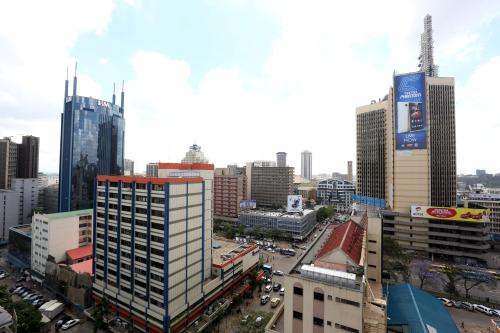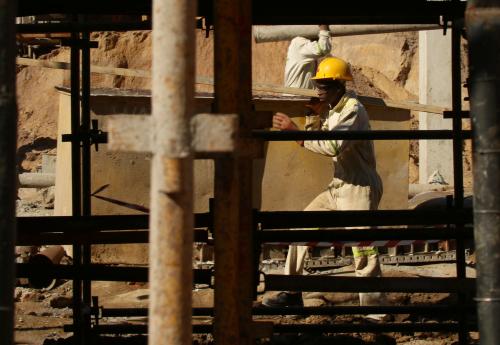According to a recent World Bank report, policy and institutional quality weakened in sub-Saharan Africa last year, as 40 percent of countries saw a deterioration in overall quality of policy and institutions, largely attributed to the global slowdown in economic growth and challenging domestic conditions, such as high borrowing and poor domestic resource mobilization.
The World Bank’s Country Policy and Institutional Assessment (CPIA) Africa is an annual report covering 38 countries that describes the trends in the quality of policies and institutions in African countries. CPIA scores have four components: economic management, structural policies, policies for social inclusion and equity, and public sector management and institutions.
The CPIA assigns one composite score to each country, on a scale of 1 to 6—with 6 being the highest—based on the four components noted above. Figure 5 below presents CPIA scores for sub-Saharan Africa in 2016. Presently, the average CPIA score lies at 3.1, a 0.1 decline from last year. Rwanda has the highest CPIA score (4.0). In the past year, Rwanda has improved the ease of starting a business, had one of the highest growth rates on the continent (5.9 percent compared to a regional average of 1.4 percent), and continues to maintain a relatively low debt-to-GDP ratio (37 percent compared to a regional average of 43 percent). Senegal and Kenya hold the second-highest CPIA scores of 3.8, followed by Cabo Verde and Tanzania with scores of 3.7. South Sudan, which has had the lowest score in both 2015 and 2016, holds a score of 1.6, a 0.3 decline from last year. The country has experienced deterioration in the quality of governance and a weakening of its business environment, largely due to its current civil war.

Forty percent of countries covered by the report (15) saw a decrease in their CPIA scores while 18 percent (7) saw an increase. The remaining 16 countries’ scores did not move. The changes have been relatively marginal as the average CPIA score change is of 0.1, but a notable exceptions is Mozambique, as its CPIA score declined by 0.3. This drop is largely attributed to the 0.8 decline in the economic management indicator as the country has been dealing with a debt crisis that unfolded when international financial institutions uncovered billions of dollars in undisclosed government loans.
Over the last few years, the components of the CPIA have evolved at different paces, as seen in Figure 7. Since 2008, overall economic management has deteriorated. The report attributes this decline to the slump in commodity prices, weak fiscal structures, and poor debt policy. Conversely, the components measuring public sector management and institutions as well as policies for social inclusion and equity have slightly improved. The continent has seen an improvement in human capital development and a number of countries have seen improved performances in governance. The component measuring structural policies remained stagnant.

The report recommends that African countries expand governance and public sector reforms, such as financial management system upgrades, and add new dimensions, such as rights protection and transparency, to address governance challenges. Further, it recommends that countries “reduce policy implementation gaps by improving the interaction among stakeholders and the processes by which they interact as power brokers.”
Shobhit Kumar contributed to this post.







Commentary
Figures of the week: CPIA Africa assesses policy and institutional quality
August 2, 2017